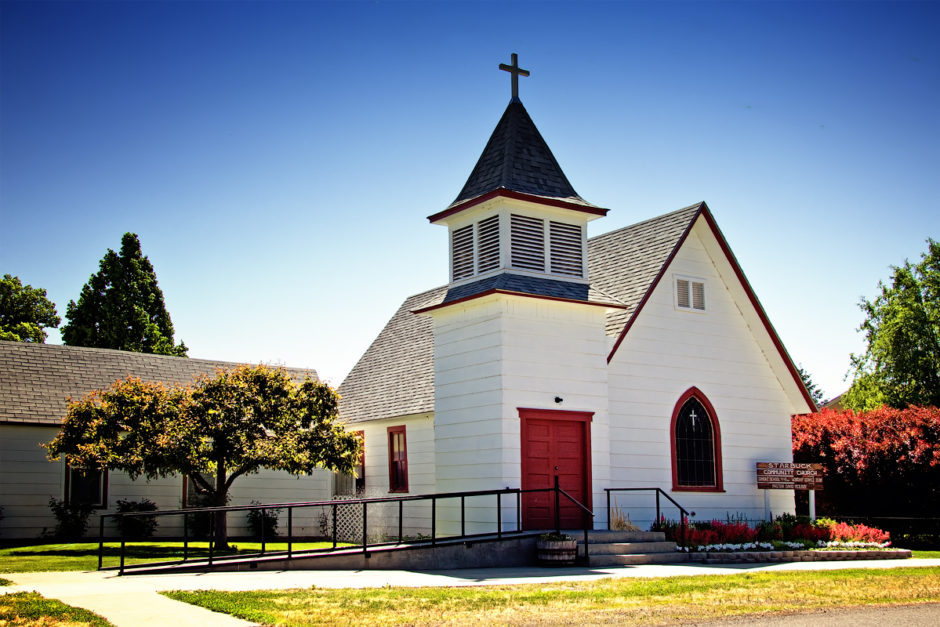C. Peter Wagner is famously often quoted for saying, “The single most effective evangelistic methodology under heaven is planting new churches.”[1] Regardless if this is true, (which I think it is) a firestorm of church planters launching out into North America the last ten years has been encouraging to see.
This recent phenomenon has many new church planters with a call to plant a church, but no real plan how to do it. They understand God has put it in their heart to plant a church, but need some practical advice how to do it. While there are many books offering advice on planting, not surprisingly, one can still look to the Bible for sage guidance on church planting.
In Acts 11 the church is expanding and the Gentiles are now being saved. In Acts 11:19-30 Luke writes about the first Gentile church being planted in the city of Antioch. This text provides 7 Key Factors that Contribute to Church Planting Success.
(1) Churches must strive to populate themselves with new converts through the preaching of the gospel. (v. 19-20)
North American church planting has been plagued with more “transfer growth” (getting already existing Christians to leave one church and go to another) rather than “conversion growth” (seeing non-believers come to Christ and join the church). In the book of Acts there was no “transfer growth.” The only way to build the church came through the preaching of the gospel to those who did not know Christ. They preached the gospel freely to both Jews and Gentiles. (v. 19-20)
It is also important to note that those who preached the gospel in Antioch were not the apostles, instead unknown “common” Christians. This is important for the church’s success.
Kent Hughes writes, “Antioch was not evangelized by the apostles but by average members of Christ’s Body who were willing to share their faith.”[2] Similarly, John Stott comments, “The Greek mission is initiated by unnamed evangelists.”[3]
(2) Churches must pray for the hand of God to be on them. (v. 21)
This goes with saying, but often goes without actually occurring. Church plants must be tremendously dependent on God through prayer. Notice the result of the prayer in verse 21 – “and a great number turned to the Lord.” God answered their prayers and many were saved! Further, notice what brought all of this to fruition thus far – 1.) They have preserved through persecution. (v. 19) and 2.) They continually shared their faith with people. (v. 19-20) It is imperative that churches in their beginning stages set a culture of prayer and dependence on the Lord’s hand to be on them.
(3) Established churches need to send their best people to help start new churches. (v. 22)
This is difficult. No pastor wants to do it. I’ve done it and it was not fun. It actually caused – for a season – some difficulty in my own church. But, it’s biblical. In Acts 11:22 we see the church in Jerusalem send Barnabas to the new church plant in Antioch. We read in Acts 11:26 he actually stayed for an entire year! Again, they sent Barnabas! They didn’t send a “nobody.” They sent Barnabas! The man with the biggest heart in the church; the son of encouragement!
Established churches should follow this principle and send their best to help new church plants get started.
(4) New church plants need to look for evidences of God’s grace in their midst. (v. 23)
In the beginning stages it is very easy to notice everything that is going wrong and everything the tiny church plant doesn’t have compared to other churches. The people of the church need to do all they can to get away from this mindset and look for all the evidences of God’s grace in the church.
This is exactly what Barnabas did when he showed up to Antioch. Acts 11:23 says, “When he came and saw the grace of God, he was glad.” This shows us the kind of man Barnabas was. He looked for evidences of God’s grace – not everything that was wrong. New church plants must fight to do the same.
(5) Church plants must vigilantly never move away from the original mission. (v. 23)
Mission-creep (moving away from the original intended mission) happens all the time. Taking up really good causes to the neglect of the Great Commission is a real danger. Church plants must vigilantly never move away from the Great Commission.
When Barnabas arrives to Antioch he gives the church a piece of two-pronged advice. Verse 23 tells us that he tells them to 1.) Walk closely with Jesus and 2.) Stay on mission. These two things are absolutely crucial for the church to persevere in.
(6) Churches must create comprehensive discipleship processes. (v. 25-26)
There are many things pastors of young church plants can allow to take up their time. Many of them are good things. However, rising to the top of most important must be a comprehensive discipleship process. If the church is truly making new converts, they need to have a process for the new Christians to enter and grow in their faith. Pastors should not get bogged down in church graphics, websites, etc… to the exclusion of creating a discipleship process for their people.
In Acts 11 Barnabas arrives and begins discipleship immediately. He even recognizes his own deficiencies at discipleship (which is why we should all love him more – he is so humble!) and Barnabas goes over to Tarsus and gets the more gifted Saul to help him. (v. 25).
There are a lot of things that pastors will neglect to do in the church plant at first; creating a discipleship process should not be one of them.
(7) Christians all over will need to send money to help church plants. (v. 27-30)
One of the greatest needs a church planter has is money. I’ve personally felt the anxiety of planting a church and not knowing how it will be paid for. It is very stressful. Christians that are financially capable to help fund new churches should. There are so many good causes that a Christian can give them money toward. This article is not discouraging that; however, I am encouraging those that can help financially start new churches to give. I’ve also experienced the amazing blessing of a wealthy Christian’s generosity help the church plant begin.
While there are other things that could be written about planting successful churches, these serve as a helpful starting point. May God plant many more churches that reach everyone who doesn’t know Jesus Christ!
NOTES
[1] C. Peter Wagner. Church Planting for a Greater Harvest (Ventura: Regal Books, 1990). 11.
[2] Ken Hughes. Acts: The Church Afire. (Wheaton: Crossway, 1996). 159.
[3] John Stott, The Message of Acts, (Intervarsity Press: Downers Grove), 201.






No Comments